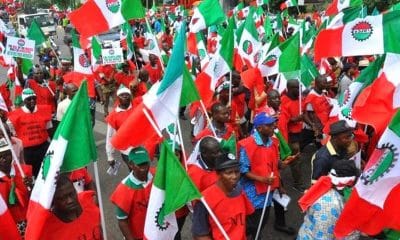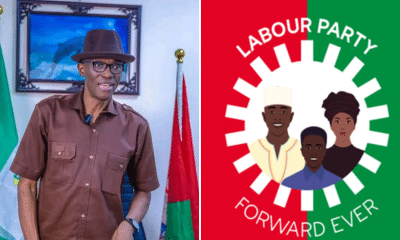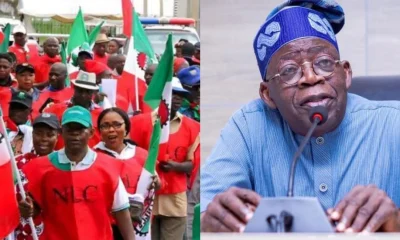Nigeria News
Federal Government Gives Update On Agreement With NLC

Labour Minister, Nkiruka Onyejeocha, on Tuesday, revealed that the Federal Government has fulfilled approximately 90% of its agreement with Organised Labour from last October.
The statement came amid ongoing discussions about the state of the nation’s economy and the recent protests organized by the Nigeria Labour Congress (NLC).
Onyejeocha speaking on Channels Television’s Politics Today, highlighted that the protests, which disrupted economic activities across the country on Tuesday, were not directly related to the government’s commitment to the October agreement but were primarily driven by concerns over food inflation.
She reassured the public that food security and economic prosperity remain key focuses of President Bola Tinubu’s administration.
The Minister’s comments followed a meeting with NLC President, Joe Ajaero on Sunday, where Ajaero clarified that the core issue prompting the protest was the soaring cost of food, rather than any failure on the part of the government to uphold its promises.
Onyejeocha urged patience among Nigerians, likening the administration’s current phase to a “planting season” with the expectation of a bountiful “harvest” in the near future.
Among the achievements outlined by Onyejeocha was the government’s action on several key points from the 15-point memorandum of understanding signed with Organised Labour on October 2, 2023.
These actions include implementing a wage award of N35,000 for workers, inaugurating a committee for the minimum wage, and suspending the collection of Value Added Tax (VAT) on Diesel for six months.
Additionally, she mentioned the release of funds for high-capacity Compressed Natural Gas (CNG) buses to improve mass transit, although she acknowledged logistical challenges beyond the government’s control, such as shipping delays.
The backdrop to these discussions and actions is a country grappling with rising inflation, economic hardship, and the aftermath of petrol subsidy removal, which have collectively heightened the cost of living for Nigerians.
Despite the Trade Union Congress (TUC) opting out of the strike, the NLC’s decision to proceed with the protest underscored the depth of public discontent regarding the economic situation, particularly food prices.
However, in a surprising turn of events, Labour suspended the protest on Tuesday night, after just one day of demonstrations.
Ajaero stated that the objectives of the planned two-day protest had been effectively met on the first day, signaling a pause in the public expression of grievances as dialogue between Organised Labour and the government continues.












